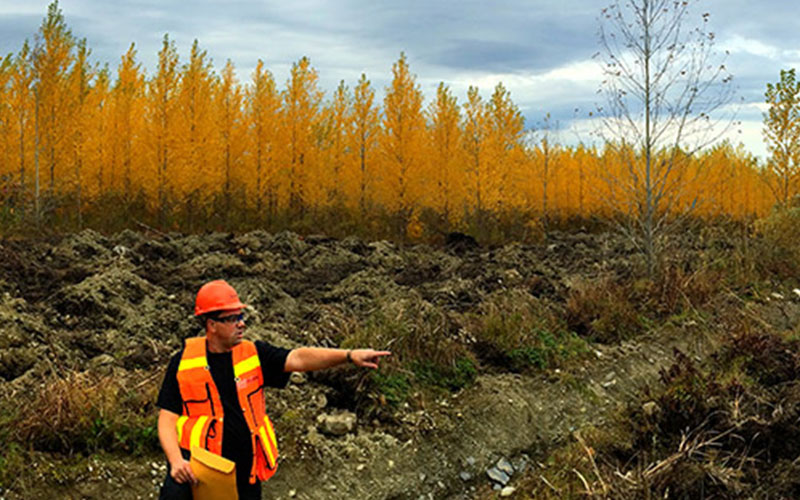Recycling in the silvicultural environment consists of spreading residual fertilizer material (MRF) such as, for example, paper or municipal biosolids, on existing plantations or on new tree plantations. The spreading of MRFs in the forest greatly favours the establishment and growth of trees. Since 2009, Viridis has carried out the silvicultural recycling of more than 150,000 tons of MRFs, in the context of hybrid poplar plantation work, in collaboration with paper industries. Thanks to its expertise in the field, Viridis provides professional services to its clients in terms of procurement, management, technical follow-up and environmental monitoring of the use of MRFs in silvicultural environments.
This work requires authorization from the Ministère de l’Environnement et de la Lutte contre les changements climatiques (MELCC). According to the MELCC, recycling organic residual materials as fertilizer is the best way, from an environmental point of view, to dispose of these materials. This reduces the emission of greenhouse gases (GHGs) compared to landfilling while promoting the growth of trees that fix GHGs: a double advantage. By complying with regulatory requirements and agronomic best practices, recycling MRFs in a silvicultural environment represents very economical fertilization and a global solution for managing organic matter that poses a negligible risk to the environment. It is an approach that contributes to the achievement of the MELCC objectives by 2020: 0% landfilling of organic matter.

